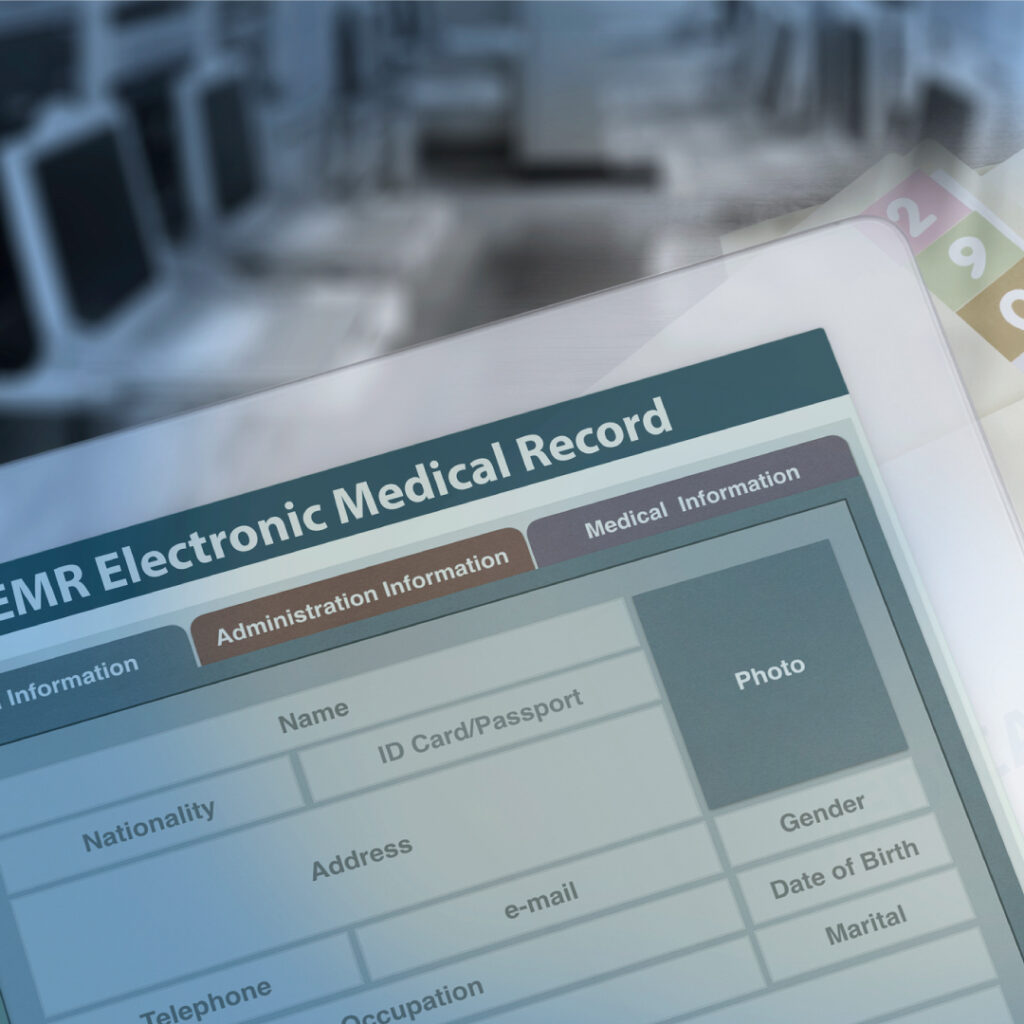Electronic Health Records (EHR) an essential with your biospecimens
Electronic Health Records ease exchange of information
In 2016, the passing of the 21st Century Cures Act marked a pivotal moment in healthcare, enhancing patient access to electronic health records (EHR). This landmark legislation aimed to empower individuals by granting them greater control over their health information. The focus on interoperability facilitates the seamless exchange of data across diverse healthcare systems while ensuring stringent privacy protections. By streamlining information flow, EHR not only enhances patient-provider communication but significantly accelerates participation in medical research. For instance, the time required to retrieve medical records has dramatically decreased, going from weeks to mere minutes. This expedited process fosters quicker biospecimen collection for research studies, thus accelerating the pace of medical advancements.

Increased information and confidence with EHR for researchers
Translational studies, which are vital for advancing medical science, heavily depend on the insights gained from donor biospecimens. These samples are not just biological materials; they encapsulate a wealth of associated data. A confirmed diagnosis is essential, providing researchers with confidence that the sample meets their experimental criteria. Furthermore, historical data regarding medications and lab results play a crucial role in selecting appropriate candidates for specific studies. Additional elements such as vital signs, social history, immunization records, and family medical history enrich the dataset and offer researchers a comprehensive view of the subjects involved, allowing for more accurate interpretations of study outcomes.
The standardized structure of EHR data, presented through frameworks like Consolidated Clinical Document Architecture (CCDA) and Fast Healthcare Interoperability Resource (FHIR), plays a crucial role in facilitating efficient access to relevant medical information. This structured format allows healthcare professionals and researchers to seamlessly integrate vital data into secure and compliant software systems, thereby enhancing the efficacy of research initiatives. The ability to quickly retrieve and analyze patient data is essential for making informed decisions in clinical trials and other research settings.
Brian Neman, the CEO and co-founder of Sanguine, emphasizes the necessity of integrating EHR with biospecimen collection, stating, “The need for more comprehensive datasets—including both molecular and clinical data—continues to grow. This demand is driven not only by drug developers seeking insights for biomarker discovery but also by the rising significance of cell and gene therapy. The medical industry is increasingly recognizing that successful outcomes in these next-generation therapies depend on having detailed information regarding the cells utilized, whether in research settings or during therapeutic manufacturing processes.”
EHR instills confidence in researchers by ensuring that samples align with their specific research needs, such as diagnosed conditions and inclusion/exclusion criteria. Moreover, the extensive historical data regarding the health of donors provides invaluable context for understanding the biospecimens. As research continues to evolve, the depth of information available through EHR systems will play an increasingly vital role in facilitating groundbreaking discoveries. The data derived from EHR not only supports clinical claims but is also essential for robust population studies, ultimately driving forward advancements in medical science.
In conclusion, the integration of electronic health records (EHR) with biospecimen collection represents a transformative advancement in the field of medical research. By enhancing data accessibility and facilitating comprehensive analyses, EHR empowers researchers to make significant strides in understanding complex health conditions and developing innovative therapies. As the healthcare landscape continues to evolve, the importance of EHR will only grow, shaping the future of patient care and biomedical research.
Moreover, EHR systems facilitate better collaboration among healthcare providers. With access to shared patient data, interdisciplinary teams can work together more effectively, ensuring that all aspects of a patient’s care are coordinated. For example, a primary care physician can easily share relevant information with specialists, leading to more informed decision-making and reducing the risk of errors associated with fragmented care. This level of collaboration is particularly critical in managing chronic illnesses, where multiple healthcare providers must be involved in a patient’s treatment plan.
Additionally, the integration of EHR into clinical practice enhances patient outcomes by enabling personalized treatment approaches. With comprehensive health information at their fingertips, healthcare providers can tailor interventions based on individual patient histories, genetics, and lifestyle factors. This shift towards personalized medicine is supported by extensive data analytics, which utilize EHR data to identify trends and predict patient responses to various treatments. As a result, patients benefit from more effective and targeted therapies, leading to improved health outcomes.
Visit our Comprehensive Donor Page to learn more

